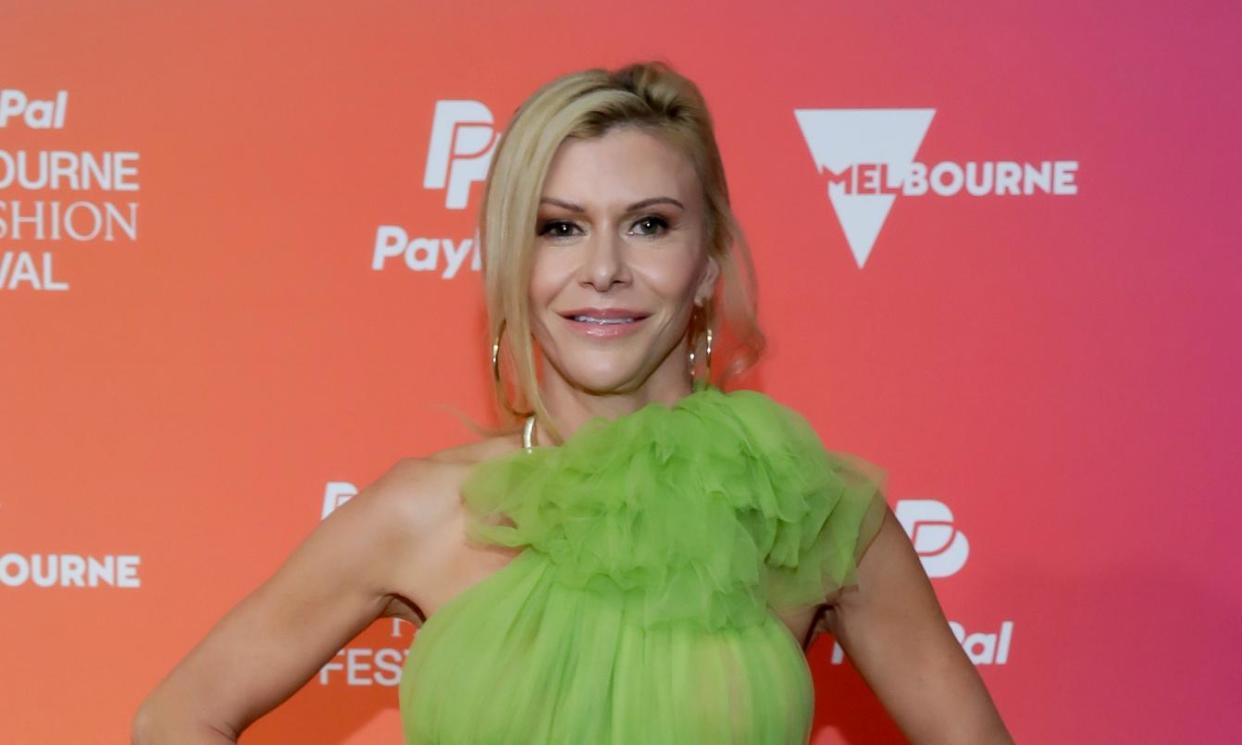Reality TV star Gamble Breaux knew she’d been hacked. Then the deepfakes of the prime minister began to appear

Real Housewives of Melbourne star Gamble Breaux realised her Facebook page had been seized by scammers as soon as it happened in mid March.
“I knew at that second and thought, ‘How could I be so stupid?’,” she says.
For weeks afterwards, Breaux was locked out of her account and left watching on helplessly when her page flooded the platform with scam ads featuring deepfake videos of Anthony Albanese promoting fake investments.
Related: Channel 7’s David Koch is angry about an internet death rumour scam. What is it all about?
By the time she wrested it back, hackers located in Vietnam had posted more than 200 ads.
Breaux, a singer and one of the stars of an Australian version of the Real Housewives franchise until 2022, says she received an email in late February from someone falsely claiming to be from popular podcast The Homo Sapiens, inviting her to appear as a guest.
She accepted and during a video call on WhatsApp Breaux she says the scammer offered to help her set up paid events on her Facebook page, in the process requesting she share her screen to talk her through it.
“I shared my screen with him, which is so dumb I can’t even believe it,” she says. “He said, ‘Can you press the link’ … I knew straight away that he’d taken over the account.”
The hackers spent close to $1,400 on 238 ads through her account before she was able to regain control, money the scammers paid Meta themselves.
“Allegations against Anthony Albanese confirmed! His secret is finally revealed!” the ads crow.
The posts mimic the format of highly prolific celebrity investment scam ads that have been splashed across social media over the past two years using, without permission, the likeness of David Koch, Sam Kerr, Guy Sebastian and others to lure unsuspecting victims.
Breaux’s page was one of at least four Guardian Australia found to have posted hundreds of scam ads featuring Albanese to Facebook in the past few weeks. The total paid to Meta for these ads alone is close to $10,000.
The most common ad in the current cycle features a fake Anthony Albanese speaking at a Labor conference discussing a scam investment, using an Americanised clone of the prime minister’s voice.
“People have become too lazy. We have already done everything so you could earn $40,000, $50,000 or even $100,000 monthly absolutely passively,” the fake Albanese says in the video. “You can watch TV, use social media, or even sit on the toilet and during this time you will continuously receive this income.”
The scams appear to be the first time an AI-generated clone of the prime minister’s voice has been used in an attempt to deceive people.
All of the ads were flagged by Facebook as being in breach of ad standards, but not before the ads collectively reached hundreds of thousands of Australians on the platform.
Breaux says she was horrified to see her account being used to post scams involving the prime minister.
“I’m fairly confident that the people that follow me really don’t want to see propaganda, and it’s very mean. And I apologise for that happening because it was my slip-up.”
She was unable to get anyone from Meta to help her for weeks, she says, and the scammer wouldn’t respond to her pleas to return her account.
“When you get in a pickle, there’s no one to help,” she says.
Breaux eventually found a contact through Instagram, also owned by Meta, and regained control of her account late last month.
After Guardian Australia contacted Meta about Breaux’s page, she received an email from the company stating, “After a review of your Page Gamble Breaux, its access to advertising is now restricted because of inauthentic behavior or violations of our Advertising policies affecting business assets.”
Her ability to advertise on the platform had been disabled pending a review.
“Further violations of our Advertising Standards may result in your account being disabled or restricted,” the email on Thursday said.
A spokesperson for Meta directed people to log on to the Facebook or Instagram help centre if they believe their page may have been hacked. The spokesperson said scams were a challenge across the internet, not just social media.
“Meta adopts a multi-faceted approach to tackle scams. We use both technology, such as new machine learning techniques, and specially trained reviewers to identify and action content and accounts that violate our policies,” the spokesperson said.
“In the final quarter of 2023, we removed 691 million fake accounts globally. We also invest in tools on our services that allow people to report scams and to warn people if they are contacted by someone they don’t know.”
The assistant treasurer, Stephen Jones, said Meta should be doing more.
“We’re seeing scammers using platforms like Facebook to go after people’s money and Meta can and should be doing much more to fight scammers,” he said.
“Shallow fakes of well-known people appear to be increasing and becoming more realistic – I don’t buy that the biggest tech companies in the world can’t do much more to get them off their platform.
“Clear message: do better.”
Jones said since the government established the National Anti-Scam Centre in July last year it was showing initial signs of success with second quarter scam losses reported to be 43% down from the same quarter in 2022, and 26% down from the July to September 2023 quarter.
The Homo Sapiens podcast posted on its Instagram page last month advising people to be aware of scammers emailing people from fake accounts, directing followers to the correct points of contact for the podcast.


